One of local body politics' most vocal Three Waters critics has launched a renewed attack on the reforms, including likening a tweak to the proposed water asset ownership structure to a "load of sewage".
And he has confirmed his council is refusing to pay its membership fees to Local Government New Zealand (LGNZ) after the organisation signed off on a non-binding agreement with the Government.
Under the plan – which will affect all of New Zealand's district and regional councils – control of New Zealand's drinking, storm and waste water systems would be transferred from councils to four regional bodies.
The proposal has led to the creation of an opposition group, Communities 4 Local Democracy, which features 31 district and city councils. And in both rural and urban areas it has seen "Stop Three Waters" billboards being erected.
In late April the Government responded to 47 recommendations made by the Three Waters independent working group about the initial proposed reforms, with Local Government Minister Nanaia Mahuta stating: "We are now at a point where the case for change is well made and the policy has been robustly tested and improved.
"We have listened to concerns and now is time to move forward with these reforms."
And last Thursday, Mahuta introduced legislation to Parliament that would create the four new water entities that will deliver the Three Waters services – which cover drinking water, wastewater, and stormwater.
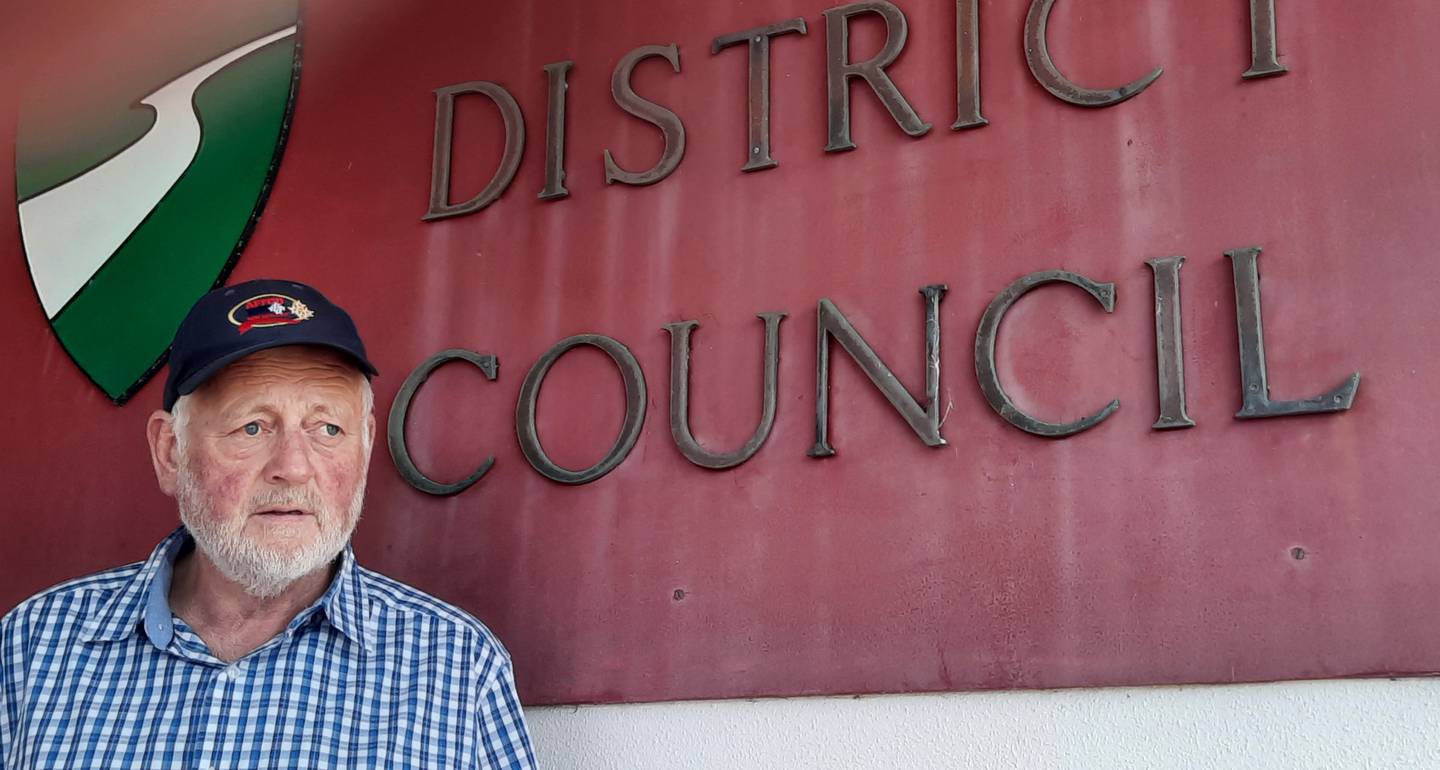
Wairoa District Council mayor Craig Little has hit out again at the merits of the Three Waters reforms and how they are being ushered in. Photo / Neil Reid
But Wairoa District Council mayor Craig Little - part of a group of mayors and councils who have vowed to fight Three Waters' introduction – described some of the "propaganda" around the reforms as "bulls***".
He also said he firmly believed the introduction of a public shareholding structure would not do enough to protect council-purchased and owned assets from being potentially privatised.
"They have come out with this shareholding thing to show that it solves the ownership [concerns] ... what a load of sewage," Little told the Herald.
"The latest announcement is gosh they are doing these amazing 40 tweaks for us that the working group came up with. And it is just the biggest joke ever ... they [the working group] could only tweak within the inner square ... they couldn't tweak outside of that square.
"They were given the parameters and that is it.
"It is just another 'good' propaganda stuff ... they are just trying to make out how wonderful it is."
On the same day Mahuta introduced the Water Services Entities Bill into Parliament last week, the Timaru, Waimakariri and Whangarei district councils launched a legal challenge to see how Three Waters – and any subsequent reforms – could impact property rights.
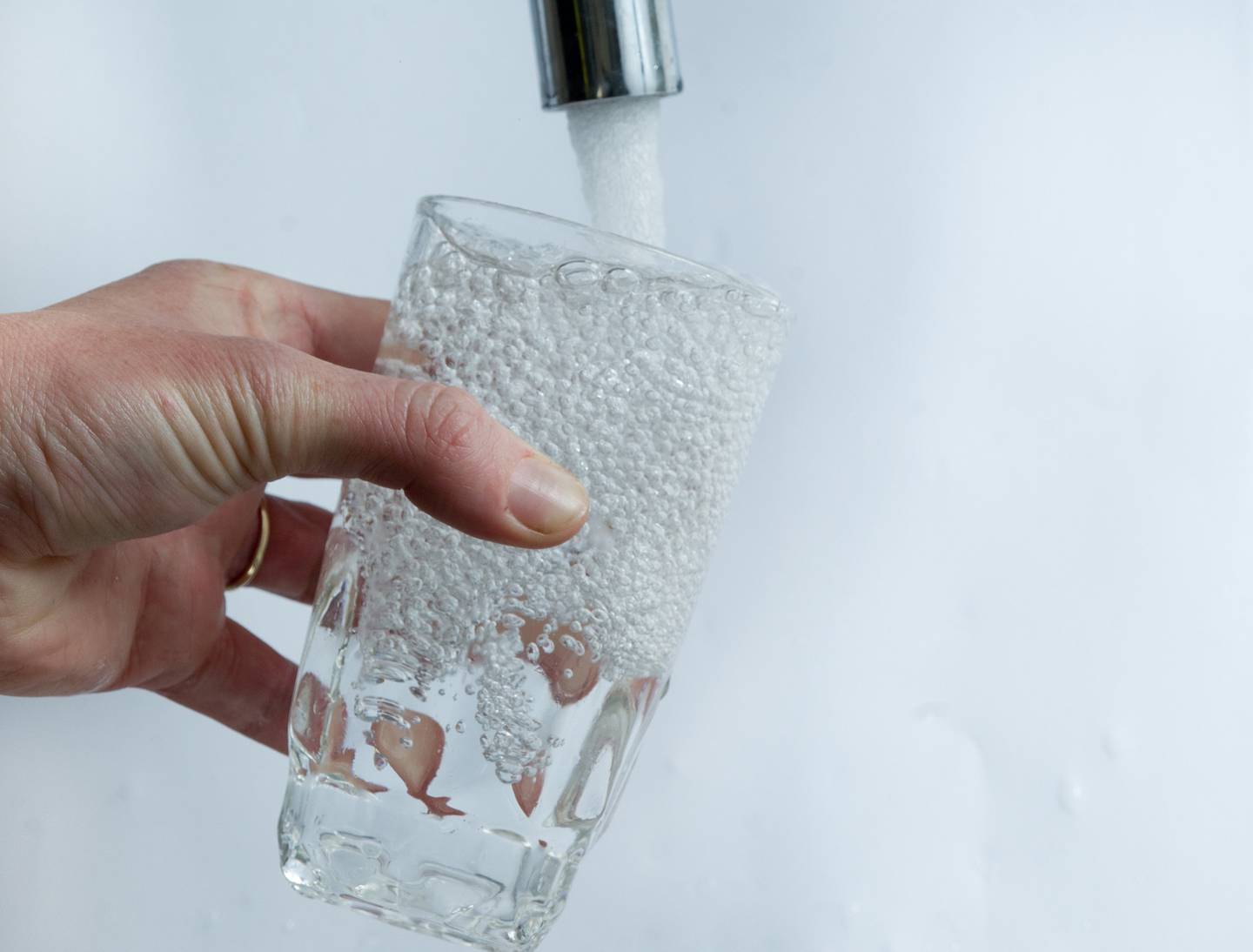
The quality of drinking water will be protected under Three Waters, its backers say. Photo / Stephen Parker
The legislation will have its first reading on Thursday.
All three councils are part of the breakaway Communities 4 Local Democracy which features 31 district and city councils opposed to Three Waters. So too is Wairoa's council.
Little said management within councils around New Zealand realised improvements could be made to its water operations, but what he said was a "one-size fits all" Three Waters model was not the right answer.
Despite the official Government line over Three Waters, Little said he could not accept that the needs of a small district like his - or others of similar size in New Zealand - would be prioritised by the four large regional bodies to be created.
While the Government is pushing ahead with the planned reforms, National leader Christopher Luxon – who is leading a poll revival for his party – has stated the legislation will be repealed if National is in government after next year's election.
"I am very disappointed that this Government is not listening," Little said.
"The country is telling them they don't want it, but they are going ahead with it as it is. I suppose the good news is that National has said they will overturn it.
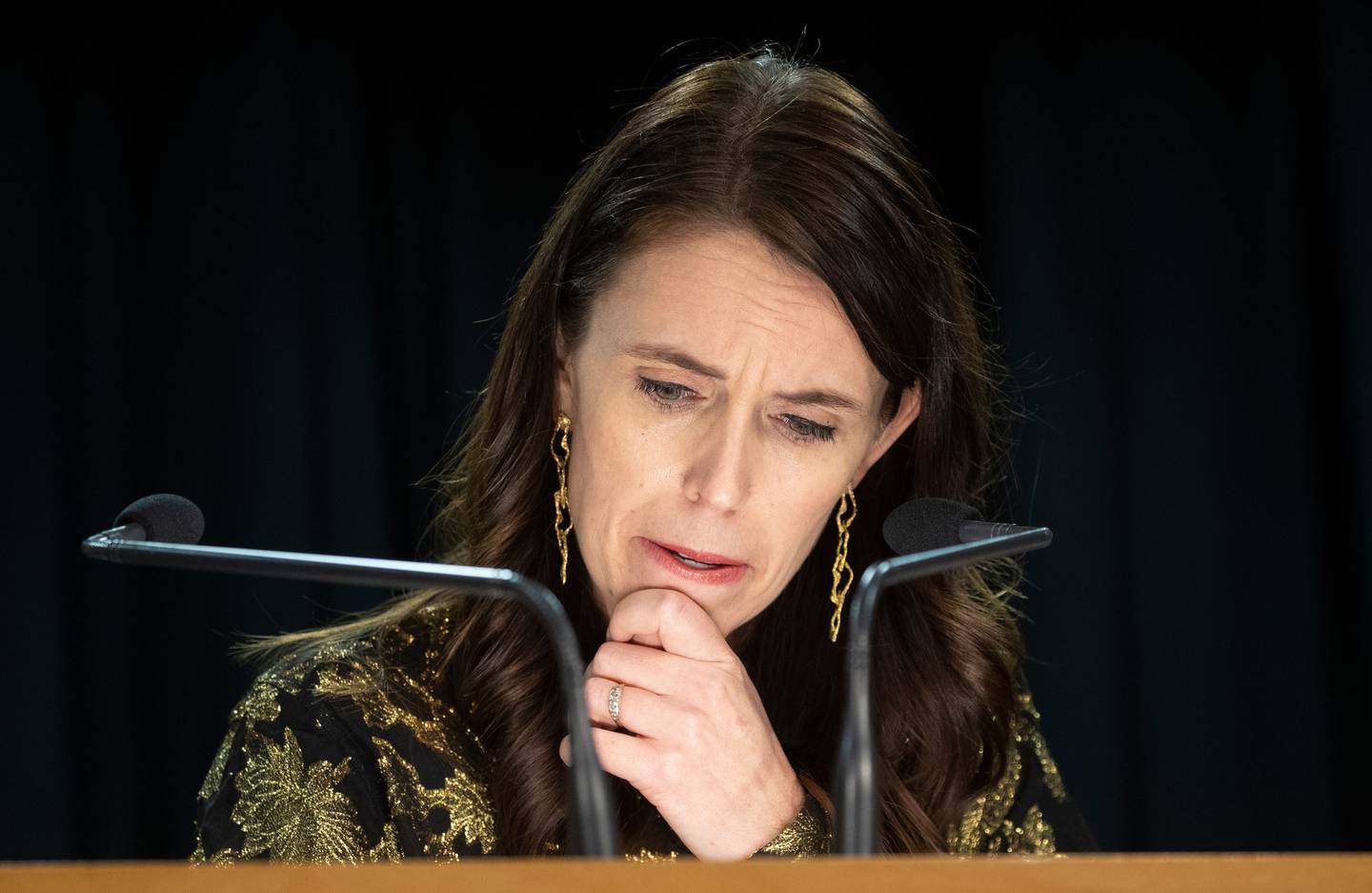
Prime Minister Jacinda Ardern has now copped heat over Three Waters from two Hawke's Bay-based mayors. Photo / Mark Mitchell
"I don't know why Labour ... are just not listening. The Prime Minister should wake up and start to listen.
"It just amazes me that they think they have come up with this wonderful solution when everyone has told them it is not.
"There comes a time when they have to think they are flogging a dead horse ... that is all they are doing at the moment."
Little is not the first mayor in the wider Hawke's Bay to direct their Three Waters frustrations in Ardern's direction.
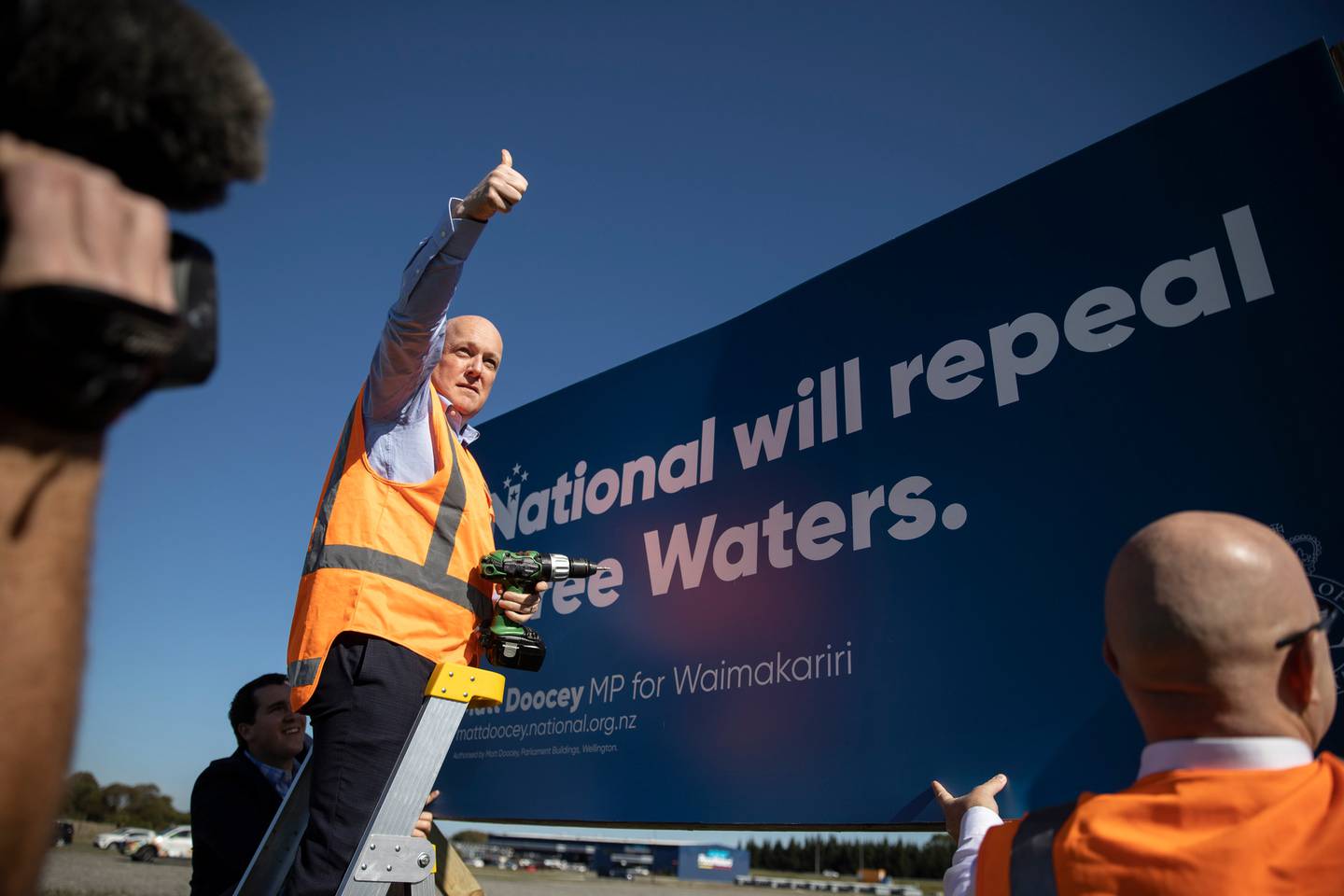
National Party leader Christopher Luxon says his party will repel Three Waters if they are in power after next year's election. Photo / George Heard
The Herald revealed in April how Central Hawke's Bay District Council (CHBDC) mayor Alex Walker wrote to Ardern late last year "with sadness" over the reform programme.
In the letter, Walker wrote: "I am sad to say that you have lost the people on your path of Three Waters reforms."
Little said the way the Government was pushing on with its Three Waters structure – including shelling out $34 million on contractors and consultants – made their stance look pre-determined regardless of feedback.
That spend included money on a publicity campaign selling the reforms to New Zealanders.
"They have wasted $34 million on contractors and consultants. That is just ridiculous," Little said.
"They could have split that around 67 councils and we could have got around $500,000 each. We could do a lot with $500,000."
Little has previously labelled a TV advertising campaign promoting the reforms as "a joke", adding "if we did that we would be run out of town".
Almost 50 complaints were laid with the Advertising Standards Authority over the content of the advertisements.

An anti Three Waters banner nailed to a fence in suburban Napier. Photo / Neil Reid
Mahuta also later acknowledged the execution of the TV campaign – which pointed the blame for a range of water failures firmly at councils – had been wrong.
One sum of money that is not being paid is the Wairoa District Council's membership fees to LGNZ.
Little said his council paid more than $30,000 to the group each year, money which he expected would see LGNZ advocate on their behalf.
But after LGNZ signed a non-binding Three Waters agreement with the Government, Little said "we have asked ourselves why are we paying this money when they have completely dropped the ball. Our subscription is on hold at the moment."

Local Government Minister Nanaia Mahuta says the time is now to reform New Zealand's water infrastructure systems. Photo / Mark Mitchell
Mahuta: "Without reform" water infrastructure will "continue to deteriorate"
Local Government Minister Nanaia Mahuta says she understands some of the concern around Three Waters, but says change is needed.
Mahuta has introduced legislation that would establish four dedicated Water Service Entities that she says would "enable infrastructure to provide safe and affordable drinking water, wastewater and stormwater services".
"These changes will deliver clean and safe drinking water services at an affordable price for New Zealanders," she said.
"By investing in such critical infrastructure now we can help secure New Zealand's economy for future generations.
"Everyone accepts the need for change. Without reform our water infrastructure will continue to deteriorate.
"Households, businesses and communities would face genuine public health risks, services that don't meet their needs, and rising bills of up to $9000 a year per household just for water services."
Mahuta says that as a result of "years of underinvestment" that across the country there were "threats to water quality".
"Pipes burst in our city streets, sewage flows into our waterways, and almost 500,000 New Zealanders in one year were forced to boil their water because of faecal contamination," she said.
"This is unacceptable and the costs to communities and ratepayers are just too big to ignore. We are acting now because others wouldn't."
Mahuta has previously acknowledged "anxiety around change".
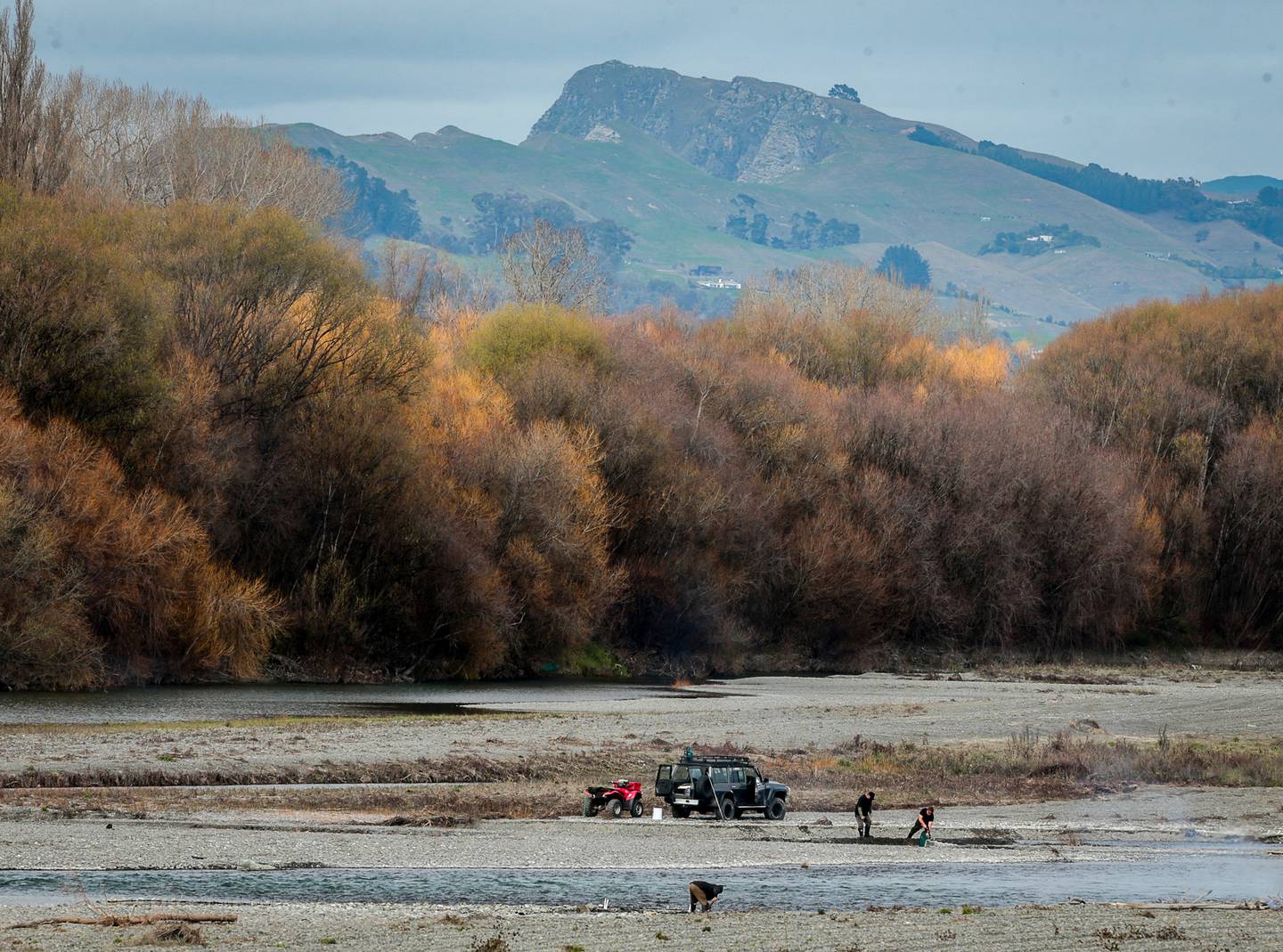
Rural waterways like this one in the Hawke's Bay would gain greater protection under Three Waters, those pushing the reforms say. Photo / Warren Buckland
But she has stressed that ensuring public ownership was a "bottom line" for the current Government and that the bill contained "strong protections against privatisation that will ensure this essential infrastructure is safeguarded for future generations".
"The Bill also incorporates the recommendations of the Working Group on Representation, Governance and Accountability. It secures community ownership of the water entities, protects against privatisation, and ensures a stronger community voice in the new entities.
"It ensures the collective ownership of the entities by local government on behalf of their communities through a shareholding allocated on the basis of population, as recommended by the Working Group.
"The Bill contains robust mechanisms to provide for iwi/Māori rights and interests in our three waters system but makes clear these rights and interests do not include ownership."
After its first reading, the bill will then be subject to a full select committee process where "further public submissions will be welcomed".
Mahuta also said further legislation will be introduced later this year to enable the transfer of assets and liabilities from local authorities to Water Services Entities, and integrate entities into other regulatory systems.
Other legislation would cover economic regulation and consumer protection, to ensure water services were reasonable and affordable.
A National Transition Unit would then oversee the establishment of the new entities over the next two years.
Take your Radio, Podcasts and Music with you









